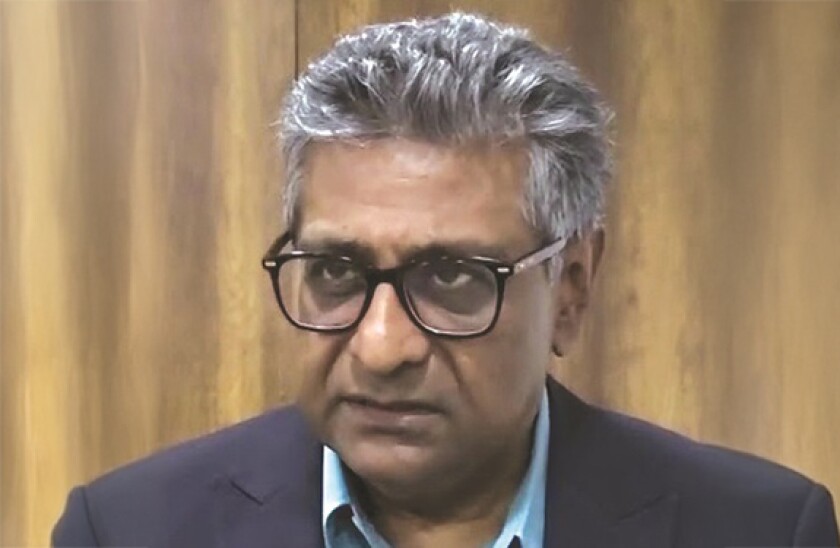South America’s smallest country, Suriname, is on the verge of an unprecedented era of abundance after TotalEnergies on October 1 confirmed its final investment decision on an offshore oilfield that will bring an estimated $10.5bn of investment to the country — more than twice its GDP.
The government has already made difficult choices to rehabilitate its economy, but finance minister Stanley Raghoebarsing and foreign affairs minister Albert Ramdin told GlobalMarkets that the country had arguably an even bigger challenge ahead: to make the most of a potentially transformative oil boom.
Suriname needs to avoid ‘Dutch disease’ — when rapid expansion in one sector makes others shrivel as an influx of money makes the economy uncompetitive. The country is also considering which international institutions it will partner with.
“Until now, we have had to manage a country with a scarcity of funds,” said finance minister Raghoebarsing. “Very soon we will have to manage a country with an abundance of resources, which takes maybe more, but definitely additional, skills to manage, and make sure that it does not translate into a curse.”
Suriname has come back from the brink under President Chandrikapersad Santokhi. After an International Monetary Fund-endorsed debt restructuring that took three years from 2020 to 2023, Suriname’s debt has fallen from 146% of GDP in 2020 to 86%. Its primary deficit of 8.4% in 2020 is set to become a 2.8% surplus this year.
“Santokhi has done an incredible job in slashing subsidies and increasing the revenue base, and deserves credit,” said Nathalie Marshik, managing director in EM credit trading at HSBC in New York. “The IMF must be extremely happy with the job the government has done.”
Total’s investment exceeds earlier expectations of $9bn, and Marshik said it was “very, very good” for the country. But she said the primary concern had to be to prevent Dutch disease.
Marshik said Suriname also needed “laws and structures in place that ensure the oil money is responsibly used”.
Choice of partners
Raghoebarsing highlighted the importance of protecting central bank independence, making sure Staatsolie, the state oil company, continues to operate in a business-like fashion — not preselling oil — and building institutional strength.
Some cash-strapped countries have presold oil at low prices, including to China, while it is still in the ground, but this can tempt them to overspend.
Suriname’s new sovereign wealth fund is already staffed and will be linked to future budgets.
Raghoebarsing insisted that Suriname’s problems which had “built up over decades” could “not be solved in three years”, and that the stage was set to consider a follow-up IMF programme — though after the next election in May 2025.
Newfound oil wealth means, however, that Suriname is likely to have the luxury of choosing its financing partners. And foreign minister Ramdin said they should be chosen “on the basis of good merits and good evaluations”. They may not be the traditional Bretton Woods institutions.
“I think it’s time for the government to build relations with other IFIs in other parts of the world that can provide resources as well,” said Ramdin.
Suriname was not eligible for the G20 Common Framework on restructuring as it was not an International Development Association member, and Ramdin said the process “suffered” as a result.
“The IMF, World Bank and IADB should be willing to consider the new Multidimensional Vulnerability Index in their operational framework, and if they’re not willing to do that, we’ll need to look at other lenders that are,” said Ramdin.
The MVI, adopted by the UN General Assembly in August, is a way to measure countries’ economic resilience that is meant to be fairer to vulnerable countries like small island developing states.
“Regional banks are very well funded at this point, like CAF and the Caribbean Development Bank, as are the Middle Eastern and East Asian banks,” said Ramdin. “A reality of today’s world is that there are more institutions available for financing development, and we should not exclude them.”
Another challenge of the oil boom is whether Suriname can maintain its status as one of a select few carbon sink countries in the world — meaning it absorbs more carbon from the atmosphere than it releases.
“We are committed to remain that even if we are extracting oil,” said Raghoebarsing. “TotalEnergies is going to apply the most modern technology, they are with us in keeping the country carbon-negative. This is an important commitment for us and the global community, but it’s also important for us because we have an opportunity to monetise the carbon.”
